Sudden, severe pain in a wisdom tooth can stop your day instantly. One moment you feel fine, and the next you are clutching your jaw and searching urgently for a wisdom tooth emergency solution. Wisdom teeth sit at the very back of the mouth, and while some people never experience trouble, many face intense discomfort as these molars erupt or become infected. Understanding the causes behind this sudden pain helps you know when to seek urgent dental care and how to prevent further complications.
Impacted Wisdom Teeth
One of the most common causes of sharp wisdom tooth pain is impaction. When a wisdom tooth does not have enough room to erupt properly, it pushes against the tooth next to it or remains trapped under the gum. This pressure creates throbbing pain, swelling, and sometimes headaches.
Impacted teeth often cause recurring discomfort that quickly turns into a wisdom tooth emergency. If you notice persistent pain, difficulty chewing, or swelling around the jawline, a dentist should evaluate the tooth immediately. In many cases, the only effective treatment involves removing the impacted tooth before it damages nearby teeth or leads to an infection.
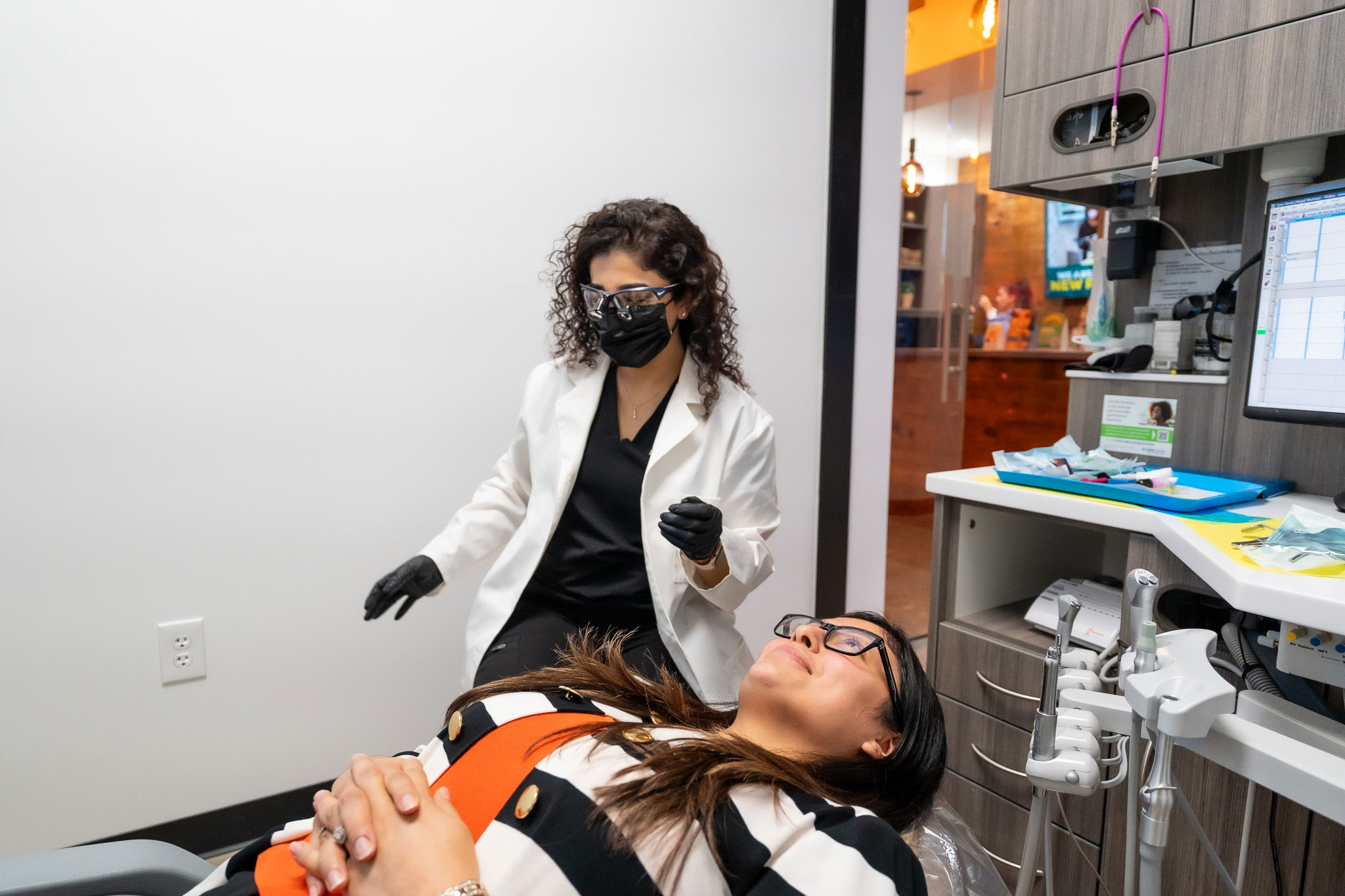
Infection and Gum Inflammation
Another leading cause of sudden wisdom tooth pain is infection. Because wisdom teeth sit at the back of the mouth, they are hard to clean. Food particles and bacteria easily trap around partially erupted wisdom teeth, causing gum inflammation known as pericoronitis.
Symptoms include sharp pain, foul taste, bad breath, and swollen gums. When infection spreads, the discomfort becomes unbearable, pushing people to search for an affordable emergency dentist near me or a rapid-care solution such as walk in dentist Houston services. Early treatment prevents the infection from spreading to deeper tissues and the jawbone.
Tooth Decay and Cavities
Wisdom teeth are more prone to cavities than other teeth because of their difficult-to-reach location. When bacteria build up and break down enamel, severe pain can arise without warning. Sometimes the decay progresses so deeply that the nerve becomes exposed, triggering intense sensitivity and sharp, stabbing pain.
In these cases, you may need urgent care from an emergency root canal dentist near me if the tooth is salvageable. However, many decayed wisdom teeth require extraction to eliminate pain and prevent further infection.
Cysts or Tumors Near the Wisdom Tooth
In rare cases, fluid-filled sacs called cysts develop around impacted wisdom teeth. These cysts can press on nerves, bone, and surrounding teeth, causing sudden severe pain. While less common, prompt diagnosis is essential. A dental professional such as those at Emergency Dentist Houston can take X-rays to detect cysts early and recommend appropriate treatment.
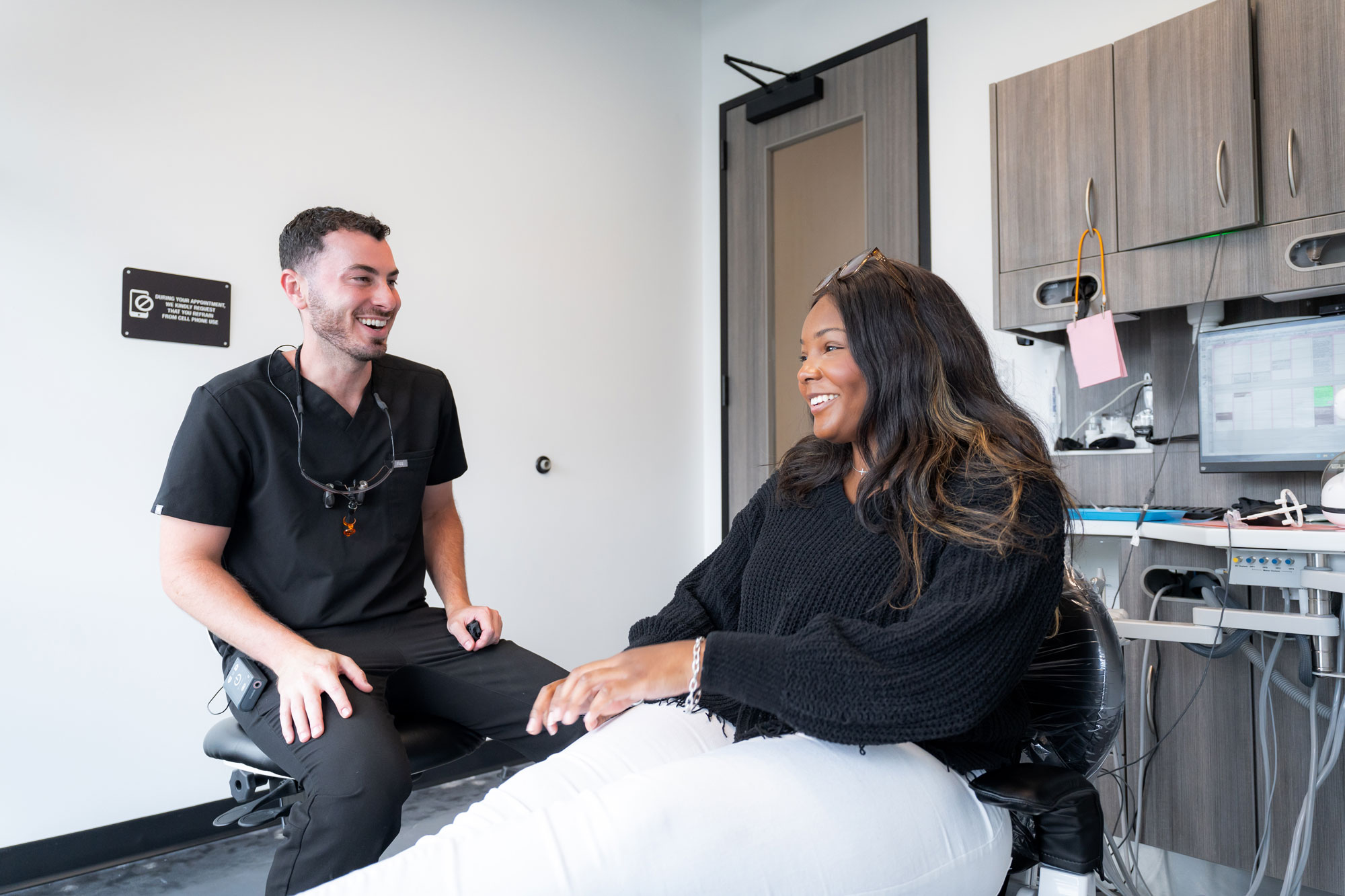
Sinus Pressure and Wisdom Tooth Pain
Upper wisdom teeth sit close to the sinus cavities. When you experience sinus congestion or a sinus infection, pressure can radiate into the teeth, creating the sensation of sudden wisdom tooth pain. Although this type of discomfort often resolves with sinus treatment, persistent pain requires a dental exam to rule out infection or impaction.
When to Seek Immediate Dental Help
Sudden severe pain is your body’s warning that something is wrong. You should seek urgent help if you experience:
- Persistent throbbing or intense pain
- Difficulty opening your mouth
- Swelling around the jaw
- Fever or bad taste in the mouth
- Pain that makes it hard to eat or sleep
In these situations, visiting a walk in dentist Houston or contacting a trusted provider like Emergency Dentist Houston ensures fast relief and timely intervention.
Final Thoughts
Sudden wisdom tooth pain rarely disappears on its own. Whether the cause is impaction, infection, decay, or pressure, timely treatment prevents complications and protects your oral health. If the pain becomes unbearable, searching immediately for an affordable emergency dentist near me or a skilled emergency root canal dentist near me can help you get the relief you need.
Dental emergencies can strike without warning, and a dental abscess is one of the most painful and urgent conditions you might face. Knowing the immediate steps for dental abscess emergency care can prevent complications, alleviate pain, and save your tooth. Emergency Dentist Houston specializes in prompt and effective solutions, offering comprehensive emergency dental abscess treatment Houston for patients in need.
A dental abscess occurs when a bacterial infection develops in the tooth or surrounding gum tissue, forming a pus-filled pocket. The symptoms are often severe and include sharp, throbbing pain, swelling in the face or jaw, sensitivity to hot or cold, and sometimes fever or fatigue. Ignoring these signs can lead to more serious health issues, including the spread of infection to other areas of the body.
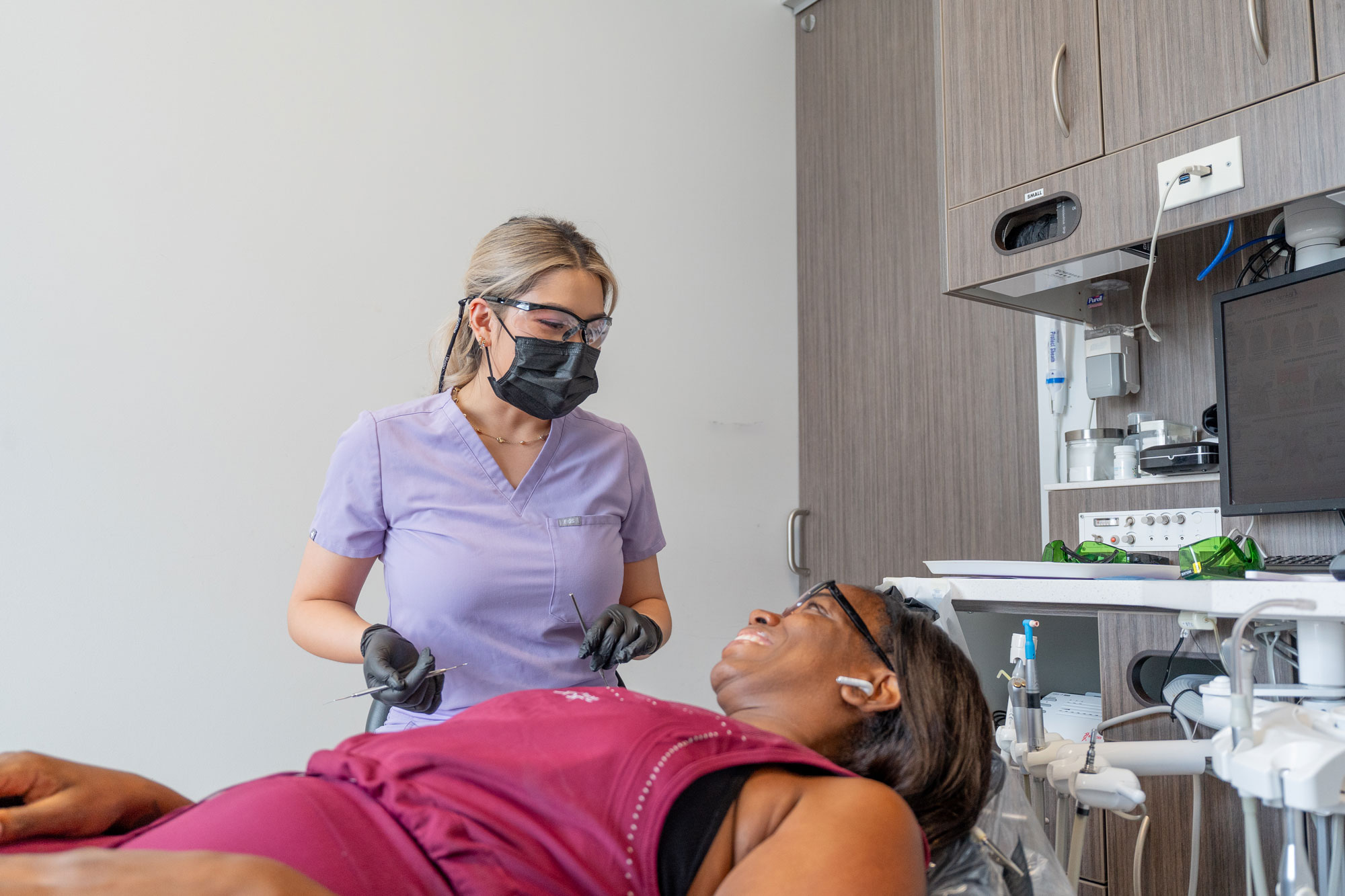
1. Recognize the Signs and Act Quickly
The first step in dental abscess emergency care is recognizing the symptoms early. Swelling, persistent pain, and pus discharge from the gum are clear indicators of an abscess. Difficulty swallowing or breathing is a severe warning sign that requires immediate medical attention. As soon as you notice these symptoms, contact an Emergency Dentist Houston or search for a Walk In Dentist near me to receive professional evaluation without delay.
2. Rinse and Clean the Affected Area
While waiting for professional care, keeping the area clean helps reduce the risk of spreading the infection. Rinse your mouth gently with warm salt water multiple times a day. Avoid aggressive brushing or poking the abscess with sharp objects, as this can worsen the infection. Over-the-counter pain medications can temporarily relieve discomfort, but they do not treat the underlying infection.
3. Avoid Certain Foods and Habits
During a dental abscess emergency, what you eat and drink matters. Stick to soft foods, avoid extremely hot or cold beverages, and refrain from chewing on the affected side. Smoking and alcohol consumption can impair healing and increase infection risk. Maintaining proper oral hygiene is essential, but it must be gentle to avoid aggravating the abscess.
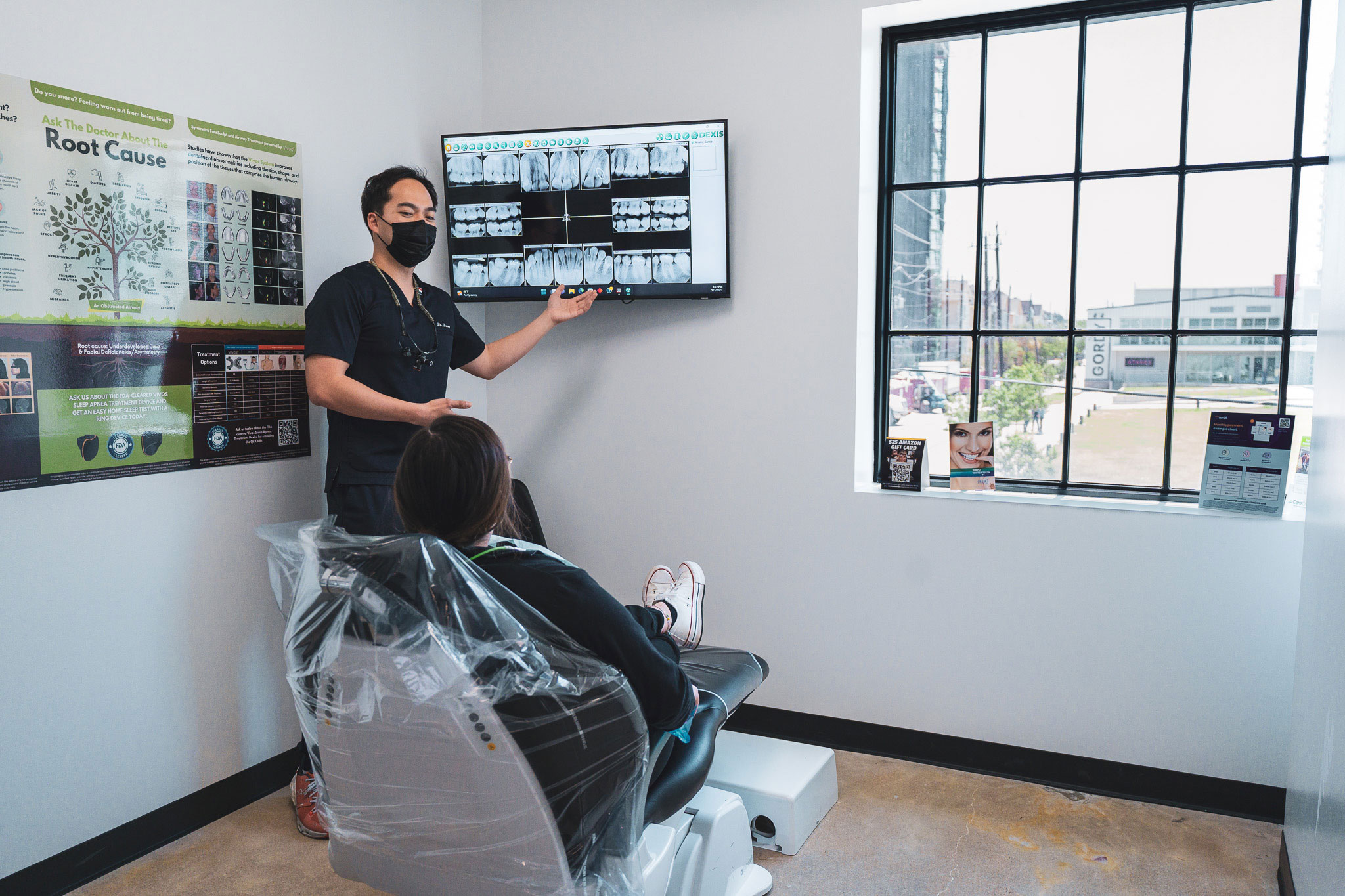
4. Seek Immediate Professional Help
The most crucial step in dental abscess emergency care is professional treatment. Emergency Dentist Houston offers specialized emergency dental abscess treatment Houston, ensuring that infections are addressed quickly and effectively. A dentist will evaluate the abscess, drain any pus if necessary, and prescribe antibiotics to control the infection. In some cases, root canal therapy or tooth extraction may be required to prevent recurrence.
5. Follow Post-Treatment Instructions
After receiving emergency dental care, it is important to follow the dentist’s instructions carefully. Take prescribed antibiotics exactly as directed, complete the full course, and attend follow-up appointments to monitor healing. Avoid self-treating or skipping dental visits, as lingering infection can lead to complications. Practicing good oral hygiene and scheduling regular check-ups help prevent future abscesses.
6. Use Emergency Dentistry Resources for Quick Access
When facing a severe dental abscess, time is critical. Using reliable emergency dentistry services like Emergency Dentist Houston can make a significant difference. They provide same-day care for urgent cases, making them the preferred choice when searching for a Walk In Dentist near me. Immediate professional intervention reduces pain, prevents infection spread, and improves recovery outcomes.
Conclusion
Dental abscesses are painful and potentially dangerous if not treated promptly. Understanding the steps for dental abscess emergency care—recognizing symptoms, keeping the area clean, avoiding harmful habits, seeking professional treatment, and following post-care instructions—is vital. Emergency Dentist Houston offers swift and effective emergency dental abscess treatment Houston, making them a reliable partner in times of urgent dental need. If you experience sudden dental pain or swelling, don’t hesitate to find a Walk In Dentist near me and ensure timely, professional care through trusted emergency dentistry services.
In modern times, teeth-whitening treatments have come so far through different technologies. You are in the right place if you need to know how to get the best teeth. This article will inform you about the latest type of teeth whitening treatment. So, continue reading to acknowlege more.
Newest Ways of Teeth Whitening
Advanced Laser Technology:
The diode lasers represent significant advancements in teeth-whitening opportunities. These lasers work best at particular wavelengths for pinpointing tooth stains, making the whitening process more effective. The Biolase Epic X laser is known for its accuracy and quickness, leading to a significant decrease in treatment duration.
Customized Treatment:
Dental professionals can now use AI and machine learning to create personalized treatment plans. These technologies evaluate a patient's dental history and enamel condition to recommend the best whitening treatment method.
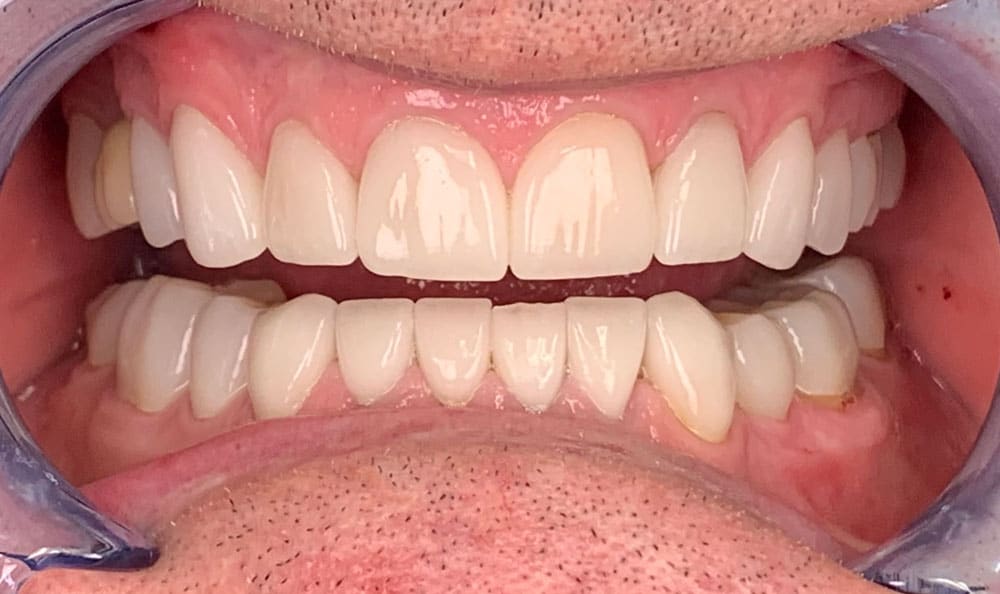
Sensitivity Reduction:
New gel formulas designed for use with lasers aim to decrease tooth sensitivity, a frequent issue associated with whitening procedures. The hydroxyapatite nanoparticles found in these gels are essential for shielding the enamel and diminishing any pain experienced.
Led Teeth Whitening:
The increase in teledentistry has led to advanced at-home whitening kits that utilize LED lights and professional-grade whitening ingredients. Kits such as the GLO Brilliant Personal Teeth Whitening Device provide professional results while also being convenient.
Sustainable options:
In response, the industry is prioritizing sustainability by offering biodegradable trays and natural whitening agents. Eco-friendly consumers are increasingly interested in products such as bamboo charcoal whitening strips.
Regulatory Compliance:
The regulatory environment and technological advancements are constantly changing. Businesses invest in clinical trials and research to ensure their products meet the high standards established by organizations such as the FDA, guaranteeing safety and effectiveness.
Ways to Find the Best Dental Clinic
After reading this, you might be thinking about getting to the right clinic so that you can access all these treatments.
Begin by investigating dental offices and reviewing feedback from patients. Search for clinics that have excellent ratings and receive good reviews for their cosmetic dentistry treatments.
- Knowledge and qualifications
Select a dentist with specialized training and a wealth of experience in cosmetic dentistry.
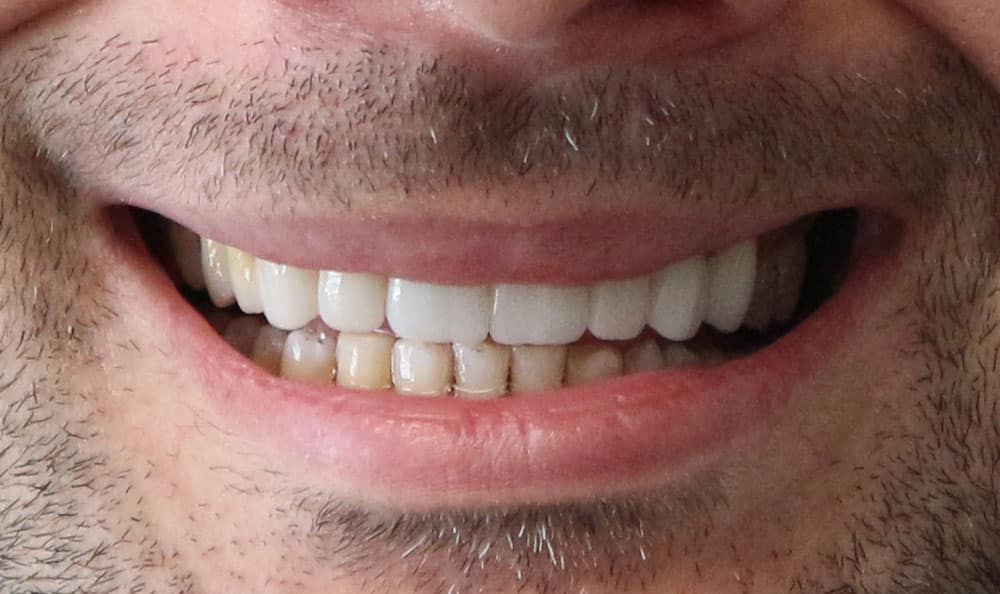
- Tools and infrastructure for technological advancements
Choose a dental center that utilizes the most up-to-date technology and tools. Up-to-date amenities can improve the efficiency and security of your whitening procedure.
An effective dental clinic will provide a comprehensive consultation to understand your requirements and tailor the whitening procedure accordingly. They must also offer transparent details on the procedure, anticipated outcomes, and possible hazards.
- Location and ease of access
Take into account the positioning of the dental office. Looking for a "dentist near me" and knowing about the professional teeth whitening cost can lead you to a conveniently situated clinic, particularly if you seek an experienced dentist.
In Conclusion
This article clearly shows that you can take advantage of the best teeth whitening experience you can get from the expert. But if you are still in confusion and want to know about types of gum disease and their treatments it would be best that you connect with the right dentist. Also, it is necessary to be familiar with the teeth whitening dentist cost as it depends on the area and also on the doctor's experience.





